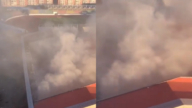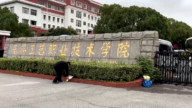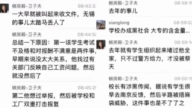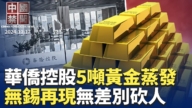【新唐人2011年11月14日讯】今年中国房地产企业最期待的“金九银十”高峰并没有出现。相反,降价潮从京沪等一线城市蔓延到二三线城市。舆论普遍认为,中国楼市下行拐点已经出现,泡沫开始破灭。中国银监会前主席刘明康在日前举行的财新峰会上再次声称,即使房价下跌5成,银行仍然不会亏本。有专家指出,无论房价涨跌,受害的始终是老百姓。
在连续几个月的小范围试探性降价之后,上海、重庆、杭州等城市都出现了多个房地产项目大幅的降价促销。
中国银监会前主席刘明康在11号开幕的财新峰会上再次重申:就算房价下跌5成,银行风险仍然可控。
他声称,目前中国房地产的银行贷款在10万亿元以上。根据银监会的压力测试结果,当房价下跌40%时,银行的贷款覆盖率是110%﹔而最坏的情况发生,也就是当房价下跌50%,银行的贷款覆盖仍能达到100%,就是说,虽然利息不能回收,但本金没有问题。
刘明康所谓“房价下降5成银行贷款仍乐观”的压力测试结果,受到了业界的一致质疑。
工商联合会房地产商会会长聂梅生在财新峰会上指出,有丰富经验的开发商使尽浑身解数都卖不出去房子的时候,银行把房子收了也是不能变卖出去,只是打了折的账面资产。房价下跌4成,银行就已经无法应对了。
财经评论家叶檀认为,“房价下跌50%银行风险可控”的说法只是虚幻的安慰剂,任何投资品种下跌50%,就意味着打开了崩溃的大门。刘明康的说法是对投资品属性不了解的大胆之言。
美国南卡罗莱纳大学艾肯商学院教授谢田:“如果说房价跌这么多他还可以照样赚钱的话,银行不会亏的话,那就是银行也好,开发商也好,不知道他赚了多少钱,这利润太高了,这绝对是暴利,这太厚颜无耻了。在美国的银行的话,房价降20%的话那麽多银行就破产了。”
《华商报》评论文章认为,地方土地财政、银行信贷和房地产商结成利益联盟,共同催生了高房价,他们也是高房价的获益者。房价升,伤的是买房的民众﹔房价降,苦的也是买房的民众。
文章认为,中国楼市本身就存在着功利浮躁的反市场行为,不公平因素导致了高房价。变成房奴的普通民众,本身就属于非理性市场的受害者。若房价升降都由他们承担,则造成了双重的不公平。
一位不愿透露姓名的大陆人士指出,很多地产商和地方政府利益勾结圈地,强拆老百姓的房子,空手套白狼压榨民众的情况非常普遍。
大陆人士:“每个中国的房地产商都是这样的,官商勾结。有的赚就炒啊炒啊,把本来属于老百姓的东西也抢光了。现在如果整个房价掉下来的话,全部都完蛋,最终受害的就是老百姓。”
另外,房地产市场景气与否直接影响到建筑、钢铁、水泥、电力和家电等行业。有经济学家曾估算,中国约50%的GDP与房地产市场的命运相关。
兴业银行首席经济学家鲁政委认为,房价降多了不光地产商扛不住,老百姓也受害。成了房奴的不愿房价跌﹔买不起房的,则一般是普通民众和低收入群体,房价大跌将使中国经济受到巨大冲击,进而导致这部分人失业,同样买不起房。
新唐人记者林莉、李明飞、萧宇采访报导。
China’s Banks No-loss With 50% Housing Price Drop?
A usual buying peak of September and October did not take
place in 2011, as expected by China’s property market.
On the contrary, a tidal wave of price cuts has spread from
first tier cities like Beijing and Shanghai to the second and
third tier cities. It is commonly believed that the downturn of
China’s property market has arrived, the bubble has begun
to burst. Former chairman of China Banking Regulatory
Commission (CBRC), Liu Mingkang, at recently held Caixin
summit, claimed again that 50% reduction of housing prices
would still keep China’s bank from suffering losses.
Experts say that, regardless of price ups and downs,
the ultimate victims are civilians.
After months of tentative small scale price-cuts,
many real estate projects in Shanghai, Chongqing,
Hangzhou and other cities have launched
great markdown promotions.
Ex-Chairman of China Banking Regulatory Commission,
Liu Mingkang reiterated at the Caixin Summit,
opened on November 11, that even if house prices fall
by 50%, banking risk is still controllable.
Liu claimed that China’s current real estate bank loans
were over 10 trillion.
Stress test results of the China Banking Regulatory
Commission showed that when housing prices fall by 40%,
the banks’ provision coverage ratio would remain 110%.
In the worst case scenario that prices fall by 50%, the coverage ratio could still reach 100%.
That is, though the interest rate would be irrecoverable,
the principal amount would be no problem.
Liu’s claims were unanimously questioned by the industry.
China Real Estate Chamber of Commerce president,
Nie Meisheng, said at Caixin Summit that
when experienced property developers would not sell out
houses, the banks would fail too,
even if they take back the houses.
These assets would only be written-off.
“The banks would be unable to cope with a 40% decrease
in housing prices"
Financial commentator, Ye Tan, says that the claim of
“bank risk control at a 50% price drop” is merely an illusory placebo.
Any investment drop by 50% means opening the door
to the collapse.
Liu’s bold remarks shows that he does not understand
the investments.
Xie Tian (Professor, Aiken Business School,
University of South Carolina): “If housing prices fall so much he [an investor] can still make money, and the bank won’t be in the red, their profit is too high,
absolutely colossal profits, that’s too brazen.
If it were in the U.S., a 20% price drop in housing price could
cause a bank to go bankrupt. “
A commentary on Huashang Daily said that localized land
finance policy, bank credit institutions and real estate developers have formed an interests alliance.
They are beneficiaries by elevating the housing prices.
Rises in housing prices harms house buyers, while drops in housing prices afflicts them too.
The article comments that China’s property market itself
exhibits utilitarian anti-market behavior.
Unfair factors led to high housing prices.
Civilians who became mortgage slaves are the victims of
an irrational property market.
If the risks of property prices’ ups and downs are
all taken on by these civilian buyers, that would cause double unfairness.
An anonymous Chinese source said that many developers
and local authorities colluded to undertake land enclosure in order to forcibly demolish civilians houses.
Such tricks of squeezing civilians, that is,
gaining valuable things with nothing, has been very common in China.
A mainland Chinese says: “In China it’s common practice
for real estate developers to bribe government officials.
Working together, they drive the housing prices up, and
make all the profit. They strip the citizens of everything.
If right now housing prices take a dive, the housing
market will collapse, but the ultimate victims would be the people.
In addition, the real estate market directly impacts
other sectors like construction, steel, cement, electricity and household appliances, etc..
Economists have estimated that about half of China’s GDP
relied on the real estate industry.
Industrial Bank chief economist, Lu Zhengwei, said that
the big drop in house prices not only causes developers to suffer losses, but also harms civilians.
Those mortgage slaves do not want to see house prices
falling.
Generally, those who cannot afford housing are
the majority of the public and low income groups.
These people would face unemployment when China’s
economy is hit by a large scale housing price slump.
At that time, they will still unable to afford housing.
NTD reporters Lin Li, Li Mingfei and Xiao Yu




























